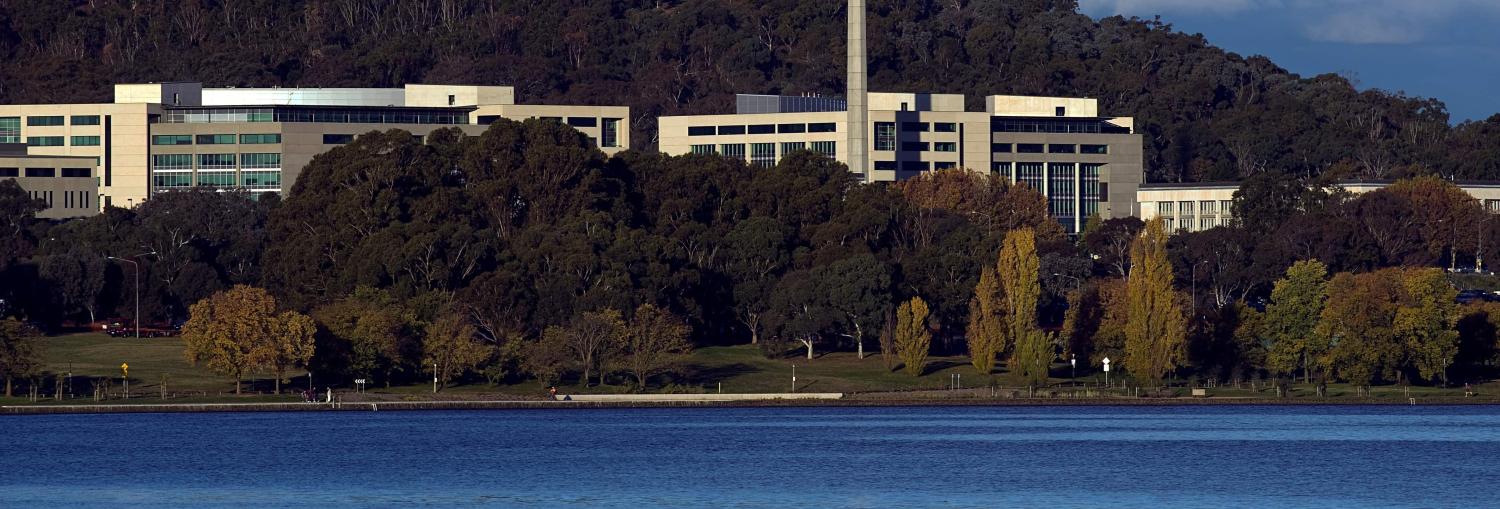Pundits were surprised and eyebrows raised late last week when the news broke that Greg Moriarty had been selected as the replacement for Dennis Richardson as Secretary of the Department of Defence.
Peter Jennings, a former Deputy Secretary of Defence and five-year-long head of the Australian Strategic Policy Institute (ASPI) had been considered to be the front-runner. Close behind was the industrious and hard-nosed Secretary of the Department of Immigration and Border Protection Michael Pezzullo. Both are in their prime and have cause to feel disappointed. Third-ranked was the Associate Secretary Brendan Sargeant.
Pezzullo, the lead author of the 2009 Defence White Paper, has spent the last eight years doing the heavy lifting for both Labor and Coalition governments in sorting out border security challenges. His compensation is that he looks set to be the new secretary of the expanded and more powerful Department of Home Affairs – a post likely to be virtually as powerful as the Secretary of the Department of Defence.
Jennings is a former Deputy Secretary for Strategy in Defence, and so is just as well-qualified for the job. He has spent the last five years out of the Department transforming ASPI from a defence think tank into a significant actor in the security policy realm.
Sargeant is a cerebral and highly regarded senior bureaucrat who has spent most of his career in Defence and has not yet headed a separate agency. The fact he was left holding the fort rather than directly appointed into the position as Secretary seemed to be the strongest indicator he was not destined for the appointment this time.
So what is it about Moriarty that gave him the edge? Well, working directly for the Prime Minister undoubtedly helped. But what Moriarty brings to the position is a fresh perspective. His early career was in the Defence portfolio, spending several years as a regional analyst in the Defence Intelligence Organisation as a civilian and part-time Army Reserve officer. He was very highly regarded for his intellect and dynamism within DIO.
As an indication of that confidence in his ability, Moriarty was trusted with particularly demanding tasks, including deploying with the small defence intelligence contingent sent as part of the coalition under General Norman Schwarzkopf working in US Central Command (CENTCOM) in the Gulf War. He also served in the Bougainville Peace Monitoring Group, where his potential was immediately apparent. But he left that behind for other things about two decades ago.
Moriarty then spent the next twenty years or so away from the Defence Department, primarily in the Department of Foreign Affairs and Trade, including stints as Ambassador to Iran and as Ambassador for Counter-Terrorism. These appointments gave him excellent experience in handling international diplomatic and security challenges that involved working closely with US and other diplomatic counterparts in addressing some of the biggest issues faced by the international community.
Nonetheless, Moriarty always maintained a keen interest in defence issues, having the foresight to complete a Masters with the Strategic and Defence Studies Centre at the Australian National University.
The area where he is arguably weakest is in the defence industry domain. His experience to date leaves him slightly exposed in terms of handling an incredibly complex capability development program, including the planned build of a dozen submarines, another dozen surface warships, the fulfillment of the acquisition program of joint strike fighters and the development of the amphibious capability. All this at a time of heightened cyber security challenges and growing regional concerns about the spread of Islamist extremism and terrorism.
But as the Turnbull Government looks to place greater emphasis on security and economic challenges closer to home, it is Moriarty’s experience as Ambassador to Indonesia that is perhaps the most significant qualification he brings to his new appointment. Moriarty was Ambassador during one of the most contentious periods in bilateral diplomatic relations, witnessing a string of challenges. He learnt Bahasa Indonesia and demonstrated considerable acumen in handling remarkably tricky circumstances related to marines, beef, boats, spies and clemency.
On the US marines, the announcement that they were to be assigned to Darwin was made without prior notification given to Indonesia. Moriarty had to manage the fallout and did so graciously.
On beef, the cessation of the live cattle trade as a prime ministerial edict, again without prior notification, once more left Moriarty to manage the grievances.
On boats, he handled the fallout from the hard-edged policy of boat turn-backs that so incensed Indonesian officials.
On spies, he managed the fallout of the Snowden revelations, and on clemency he balanced competing domestic Australian and Indonesian expectations relating to Schapelle Corby and other related cases.
Moriarty handled these crises with aplomb. What appears evident is that, in the four months as the Prime Minister’s Chief of Staff, he has also demonstrated to the Prime Minister what many of his admirers already know – that in Moriarty, Australia has an experienced, urbane, respectful, emotionally intelligent, culturally attuned and dynamic senior official who is primed to make a significant impact on the Department of Defence.
In selecting Moriarty for this position, Defence Minister Marise Payne, Defence Industry Minister Christopher Pyne and Prime Minister Malcolm Turnbull leapfrogged over the obvious candidates. And in doing so they have chosen well.

